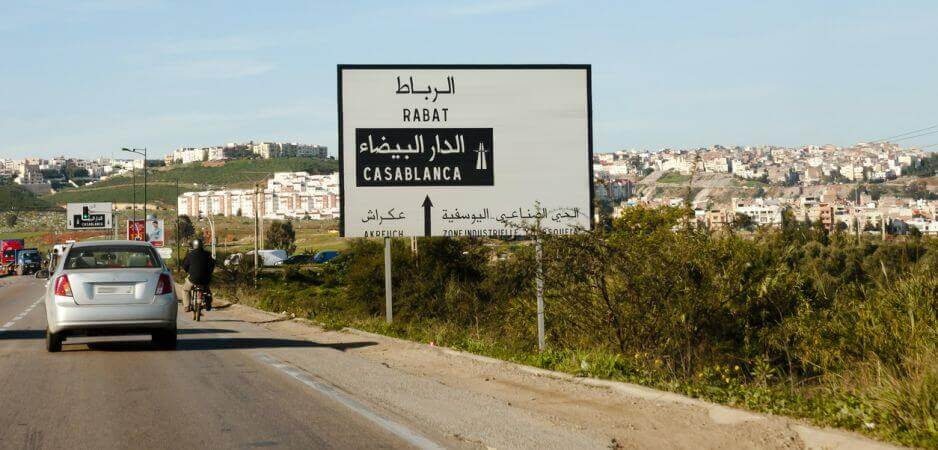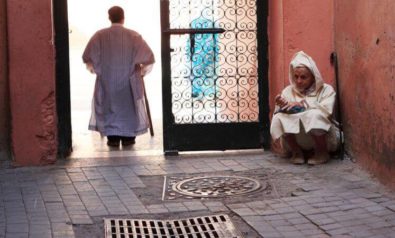Stimulating the private sector through education and small businesses is critical to alleviating poverty in Morocco.
Poverty has always been a serious obstacle to the growth of developing countries, and Morocco is no exception. Stymied in part through several decades of colonialization by two European countries, Morocco has yet to establish a satisfactory quality of life for a large part of the population. Many wake up every day and struggle to provide basic necessities for themselves and their children. These lower-income individuals and families are highly sensitive to constant fluctuations in prices for necessities.
There are many factors that contribute to the state of poverty in Morocco. Household debt has doubled over the past decade. As more families tie their wealth up in property values, their home can become like a jail, restricting their freedom and burdening them with debt for most of their lives. In addition, the educational system has been inadequate in equipping students with the necessary skills employers are looking for. This has lowered many Moroccans’ faith in education, and many families opt out when their children are still young.
Many of these problems are symptoms of poverty in Morocco. Poverty, which is characterized by low-income levels, is significantly influenced by unemployment and the ability for businesses to grow and hire employees.
As of 2014, unemployment in Morocco is 10.2%. According to Joumana Cobeinm, the International Finance Corporation head for the Maghreb, in order to bring that level down Morocco would need to grow by an additional 5% annually. The best way to do that, she argues, is to grow the private sector—specifically entrepreneurs and small to mid-size businesses that account for close to 80% of employment.
In order to stimulate the private sector and lower unemployment, Morocco will need to encourage entrepreneurship and the growth of small businesses. There are two ways to do this.
YOUTH AND EDUCATION
First, Morocco should focus on improving the quality of youth education and encouraging youth participation in meaningful careers. Improving youth unemployment statistics is critical, as leaving youth unemployment unchecked will only exacerbate income inequality going forward. Young people in Morocco represent a significant percentage of the population, and 44% of working age individuals. This is alarming given the fact that 80% of those who are unemployed in Morocco are youth, as per 2014.
If Morocco is going to encourage youth participation and improve these statistics, attention should be directed in part at the quality of education. Many schools are not equipping students with the skills that employers are looking for. This can be seen in statistics which suggest that unemployment is higher for university graduates than it is for individuals without a college degree.
The result is a lack of faith in the education system and a significant number of youths who drop out of education early. This may help explain the fact that nearly 70% of youth have not even completed middle school and a fifth are illiterate.
Initiatives aimed at aligning employer needs with the skills developed in primary schools and universities will improve the ability for young Moroccans to get jobs after graduating. In addition, the renewed faith in their education, along with the confidence of relevant experience, will spur many down the path to entrepreneurship.
THE START-UP INDUSTRY
Second, because small businesses and entrepreneurs play such an important role in job creation in Morocco, it is vital that access to capital is improved. Currently, although small and mid-sized businesses are responsible for close to 50% of jobs in Morocco and more than 30% of gross domestic product (GDP), their share of the available capital is severely underrepresented. Fortunately, emerging initiatives show promise for entrepreneurs seeking financing.
One source of improvement in the availability of capital for entrepreneurs comes from support organizations like Dare, Inc. and the Moroccan Center for Innovation and Social Entrepreneurship (Moroccan CISE). These organizations are building crowdfunding platforms, providing coaching and support for entrepreneurs, and generally helping to bridge the gap between investors and start-ups.
According to Eric Asmar, former director of programs at Moroccan CISE and former director of Dare, Inc., the incubation program was created to address three critical challenges facing social entrepreneurs: lack of access to long-term coaching and support, lack of access to networks, and lack of access to early stage financing. He posits that “long-term coaching and access to international networks go hand-in-hand with financing,” because there are not many traditional financing options available to Moroccan entrepreneurs. Improving access to financing “can have a significant impact on the development of these projects and their long-term sustainability.”
Support organizations like these are critical to improving the availability of capital for entrepreneurs. Most banks will not provide loans to businesses that cannot show at least two years of profit, and this is extremely prohibitive for entrepreneurs in need of capital to get their ideas off the ground for the first time.
The government can indirectly improve financial options for small businesses by aiding support organizations like Dare Inc. and Moroccan CISE, which work with start-ups, investors and entrepreneurs directly to create investment opportunities. This will also have the added benefit of encouraging competition with traditional banks, which would improve the ability for small businesses to obtain capital through traditional means.
There is a crisis of poverty in Morocco. Stimulating growth in the private sector is a crucial step in the direction of addressing this crisis. Improving the quality of schools so education is better aligned with employer needs will help combat youth unemployment and encourage engagement in meaningful careers. And improving the access to capital for entrepreneurs and small businesses will spur the development of businesses that contribute the most to the economy but face the greatest challenges.
The resulting economic growth and lowered unemployment rate will go a long way in combating the state of poverty in Morocco.
*[This article was written for the 2016 Voices of the World Program. In partnership with the United Nations Foundation, Fair Observer taught more than 400 students in six countries—India, Morocco, Kenya, Austria, Mexico and the United States—about journalism and substantive issues such as water, health and poverty. Click here to read more.]
The views expressed in this article are the author’s own and do not necessarily reflect Fair Observer’s editorial policy.
Photo Credit: Photon-Photos
Support Fair Observer
We rely on your support for our independence, diversity and quality.
For more than 10 years, Fair Observer has been free, fair and independent. No billionaire owns us, no advertisers control us. We are a reader-supported nonprofit. Unlike many other publications, we keep our content free for readers regardless of where they live or whether they can afford to pay. We have no paywalls and no ads.
In the post-truth era of fake news, echo chambers and filter bubbles, we publish a plurality of perspectives from around the world. Anyone can publish with us, but everyone goes through a rigorous editorial process. So, you get fact-checked, well-reasoned content instead of noise.
We publish 2,500+ voices from 90+ countries. We also conduct education and training programs
on subjects ranging from digital media and journalism to writing and critical thinking. This
doesn’t come cheap. Servers, editors, trainers and web developers cost
money.
Please consider supporting us on a regular basis as a recurring donor or a
sustaining member.
Will you support FO’s journalism?
We rely on your support for our independence, diversity and quality.






